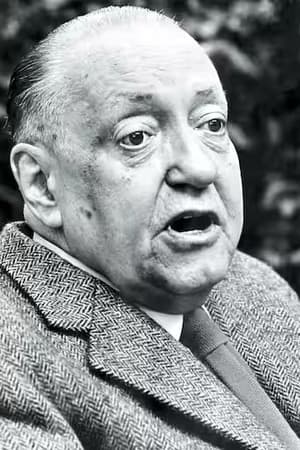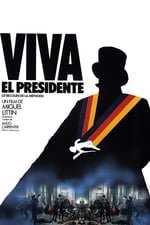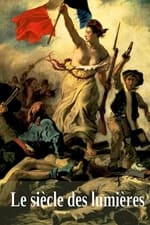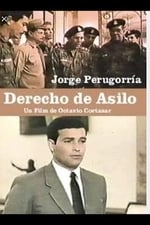Derbes aqpar
Úshin tanymal Senarı
Tanymal avtorlyǵy 6
Gender Er
Týǵan kúni 1904 Jeltoqsan 26
Qaıtqan kúni 1980 Sáýir 24 (75 years old)
Týǵan jeri Lausanne, Vaud, Switzerland
Sondaı-aq retinde tanymaly
- -
Mazmun esebi
100
Ia! Jaqsy kórinedi!
Aqaýdy baıandaý úshin kirińiz
Ómirbaıan
Alejo Carpentier y Valmont (December 26, 1904 – April 24, 1980) was a Cuban novelist, essayist, and musicologist who greatly influenced Latin American literature during its famous "boom" period. Born in Lausanne, Switzerland, of French and Russian parentage, Carpentier grew up in Havana, Cuba, and despite his European birthplace, he strongly identified as Cuban throughout his life. He traveled extensively, particularly in France, and to South America and Mexico, where he met prominent members of the Latin American cultural and artistic community. Carpentier took a keen interest in Latin American politics and often aligned himself with revolutionary movements, such as Fidel Castro's Communist Revolution in Cuba in the mid-20th century. Carpentier was jailed and exiled for his leftist political philosophies.
With a developed knowledge of music, Carpentier explored musicology, publishing an in-depth study of the music of Cuba, La música en Cuba and integrated musical themes and literary techniques throughout his works. He explored elements of Afro-Cubanism and incorporated the cultural aspects into the majority of his writings. Although Carpentier wrote in a myriad of genres, such as journalism, radio drama, playwrighting, academic essays, opera and libretto, he is best known for his novels. He was among the first practitioners of magical realism using the technique, lo real maravilloso to explore the fantastic quality of Latin American history and culture. The most famous example of Afro-Cuban influence and use of lo real maravilloso is Carpentier's 1949 novel El reino de este mundo (The Kingdom of this World) about the Haitian revolution of the late 18th century.
Carpentier's writing style integrated the resurgent Baroque style, or New World Baroque style that Latin American artists adopted from the European model and assimilated to the Latin American artistic vision. With a first-hand experience of the French Surrealist movement, Carpentier also adapted the Surrealist theory to Latin American literature. Always eager to explore more than Cuban identity, Carpentier used his traveling experiences throughout Europe and Latin American to expand his understanding of Latin American identity. Carpentier wove elements of Latin American political history, music, social injustice and art into the tapestries of his writings, all of which exerted a decisive influence on the works of younger Latin American and Cuban writers like Lisandro Otero, Leonardo Padura and Fernando Velázquez Medina.
Carpentier died in Paris in 1980 and was buried in Havana's Colon Cemetery with other Cuban political and artistic luminaries.
Carpentier was born on December 26, 1904, in Lausanne, Switzerland, to Jorge Julián Carpentier, a French architect, and Lina Valmont, a Russian language teacher. For a long time it was believed that he was born in Havana, where his family moved immediately after his birth; however, following Carpentier's death, his birth certificate was found in Switzerland. ...
Source: Article "Alejo Carpentier" from Wikipedia in English, licensed under CC-BY-SA 3.0.
Alejo Carpentier y Valmont (December 26, 1904 – April 24, 1980) was a Cuban novelist, essayist, and musicologist who greatly influenced Latin American literature during its famous "boom" period. Born in Lausanne, Switzerland, of French and Russian parentage, Carpentier grew up in Havana, Cuba, and despite his European birthplace, he strongly identified as Cuban throughout his life. He traveled extensively, particularly in France, and to South America and Mexico, where he met prominent members of the Latin American cultural and artistic community. Carpentier took a keen interest in Latin American politics and often aligned himself with revolutionary movements, such as Fidel Castro's Communist Revolution in Cuba in the mid-20th century. Carpentier was jailed and exiled for his leftist political philosophies.
With a developed knowledge of music, Carpentier explored musicology, publishing an in-depth study of the music of Cuba, La música en Cuba and integrated musical themes and literary techniques throughout his works. He explored elements of Afro-Cubanism and incorporated the cultural aspects into the majority of his writings. Although Carpentier wrote in a myriad of genres, such as journalism, radio drama, playwrighting, academic essays, opera and libretto, he is best known for his novels. He was among the first practitioners of magical realism using the technique, lo real maravilloso to explore the fantastic quality of Latin American history and culture. The most famous example of Afro-Cuban influence and use of lo real maravilloso is Carpentier's 1949 novel El reino de este mundo (The Kingdom of this World) about the Haitian revolution of the late 18th century.
Carpentier's writing style integrated the resurgent Baroque style, or New World Baroque style that Latin American artists adopted from the European model and assimilated to the Latin American artistic vision. With a first-hand experience of the French Surrealist movement, Carpentier also adapted the Surrealist theory to Latin American literature. Always eager to explore more than Cuban identity, Carpentier used his traveling experiences throughout Europe and Latin American to expand his understanding of Latin American identity. Carpentier wove elements of Latin American political history, music, social injustice and art into the tapestries of his writings, all of which exerted a decisive influence on the works of younger Latin American and Cuban writers like Lisandro Otero, Leonardo Padura and Fernando Velázquez Medina.
Carpentier died in Paris in 1980 and was buried in Havana's Colon Cemetery with other Cuban political and artistic luminaries.
Carpentier was born on December 26, 1904, in Lausanne, Switzerland, to Jorge Julián Carpentier, a French architect, and Lina Valmont, a Russian language teacher. For a long time it was believed that he was born in Havana, where his family moved immediately after his birth; however, following Carpentier's death, his birth certificate was found in Switzerland. ...
Source: Article "Alejo Carpentier" from Wikipedia in English, licensed under CC-BY-SA 3.0.
Senarı
|
||||||
|
||||||
|
Somdaý
|
|||
|




